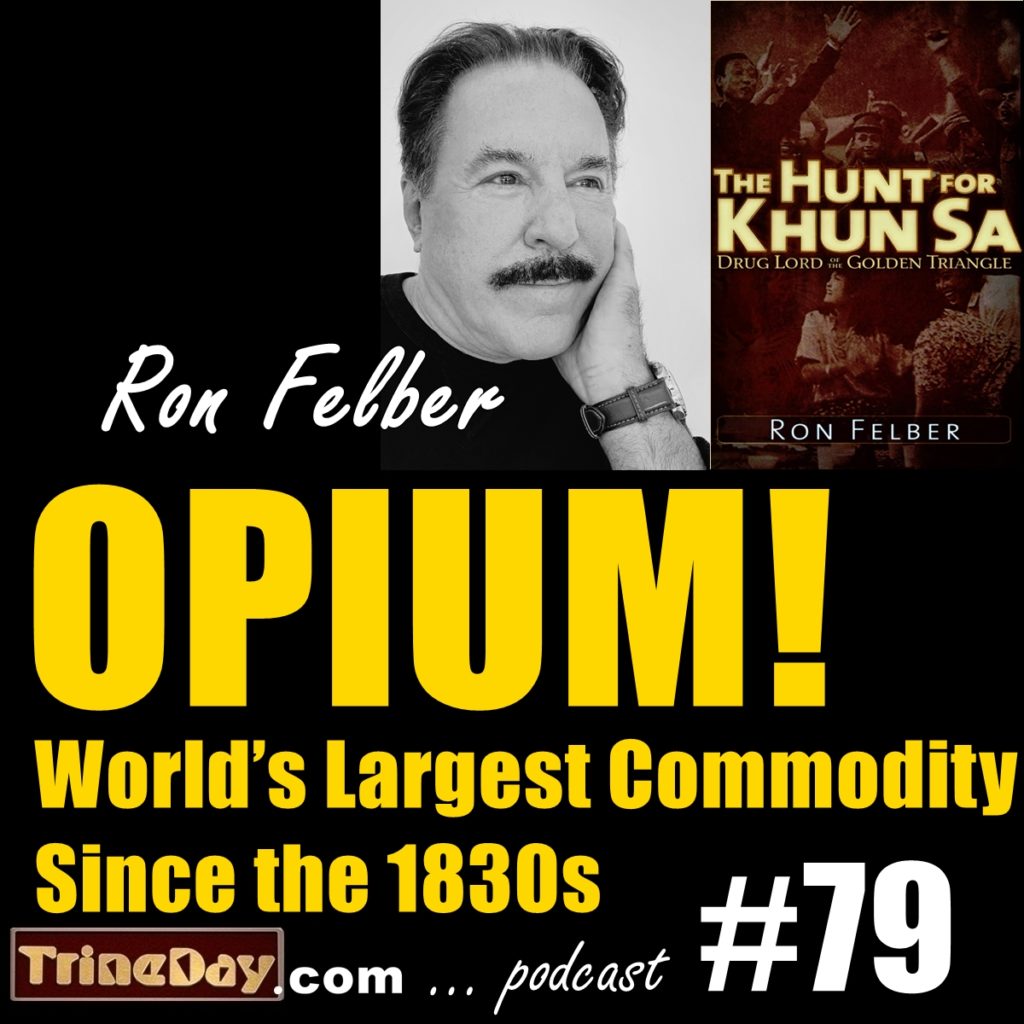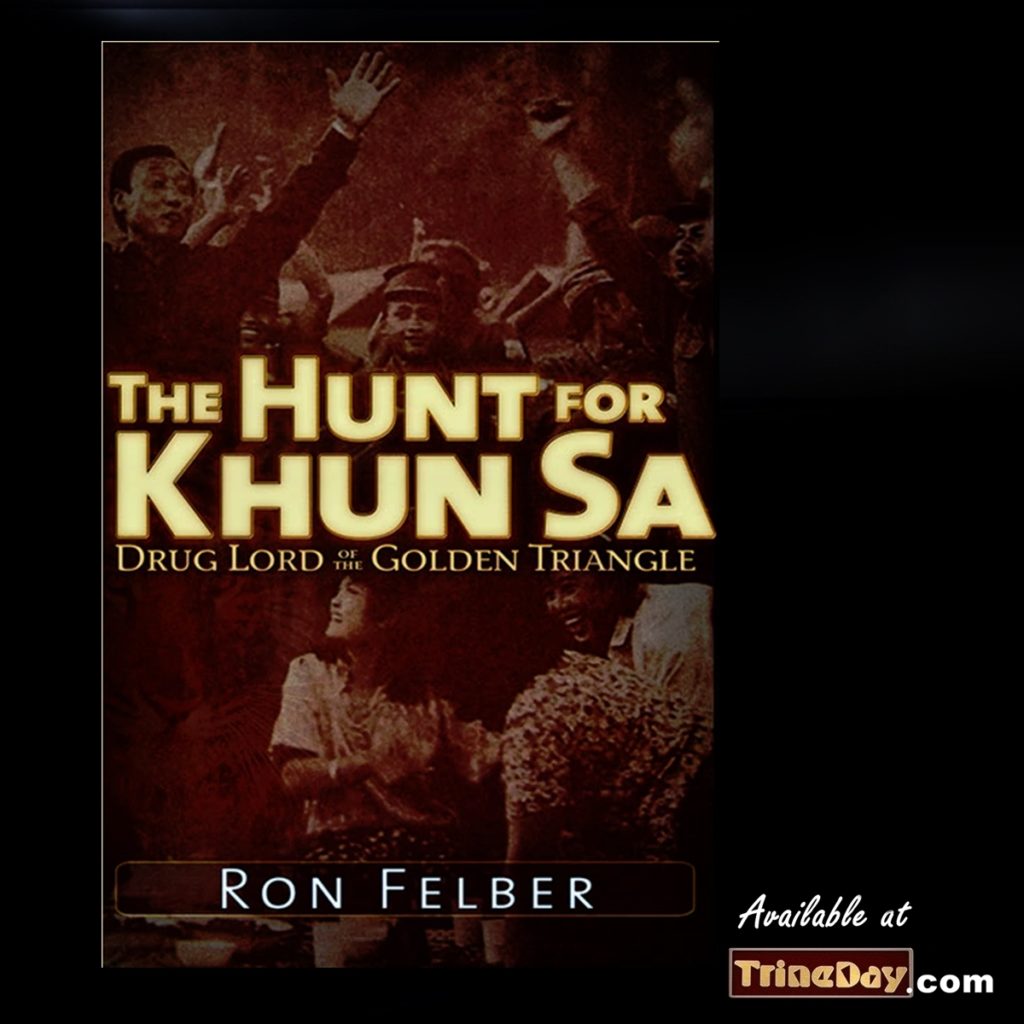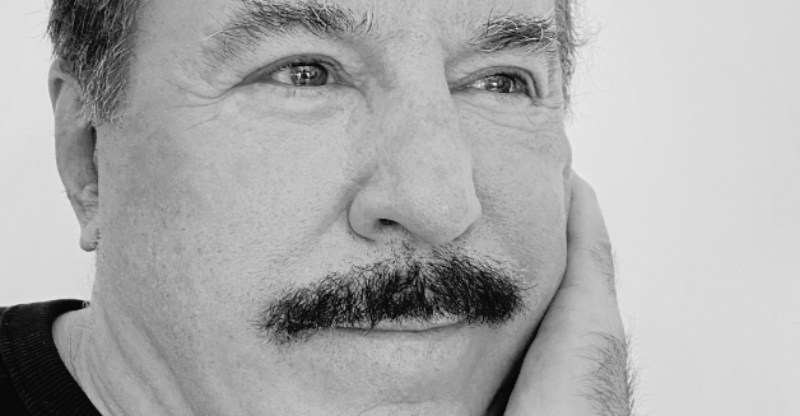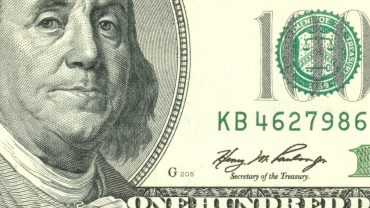The Journey 79. Ron Felber: Opium! World’s Largest Commodity Since the 1830s
Publisher RA “Kris” Millegan talks with Ron Felber about his TrineDay book, “The Hunt for Khun Sa, Drug Lord of the Golden Triangle” – currently in production with Chris Smith of “Tiger King” fame directing – black ops and other government crimes. Ron began his career writing stories for True Detective Magazine and the iconic “Nick Carter” series. Some of his other books that made their way to television and film include “Il Dottore” and “Mojave Incident.”

Kris: My daddy told me some stuff and I started [studying] what I call CIA-drugs. You were writing about that.
Ron: After college I couldn’t get a job as a writer so I took a job transporting federal prisoners as a deputy sheriff, and I wound up meeting some really fascinating criminals. Hijackers. Terrorists. Hitmen. And they had, of course, incredible stories. So from there I started to write that kind of book. Detective novels. Spy novels. And you’d get into this murky world of the CIA, et cetera. And I came across this story through a friend who had two friends who were FBI agents. They went into the DEA and then they told me about Khun Sa and said that this would be a great story.

Kris: I’d been looking very hard at the drug trade and you find that these people seem to be operating with impunity.
Ron: I had written a book called “The Privacy War” about a congressman, Neil Gallagher, who was investigating black operations that the CIA was doing on people like Martin Luther King Jr. Illegal wiretaps. Frankly, framing people. And J. Edgar Hoover threatened him and wound up putting him in prison because he would not back down.
Bill Bonanno, [consiglieri] of the Bonanno crime family, contacted me and said, “This would make a great movie. I’m interested in it.” We became friends. He provided another backdrop into the distribution of heroin into the United States. Through pizza parlors. They had a distribution chain all over the country and all over the world. So between the DEA version and Bill Bonanno filling in the blanks from a whole different point of view, [my Khun Sa book has] a panoramic view of how the drug trade operates.
Kris: There are basically two big black government operations, the drugs and the continuance of government. The drugs were basically being run out of Arkansas but it includes the whole United States and the distribution through many different ways. It was George Herbert Walker Bush as vice president who consolidated all these drug [players] because they were stepping on each other’s toes. The DEA would step on the CIA and the CIA would step on … so he then brought it together.
Ron: Prior to that the French ran these operations in Vietnam.
Kris: Right. And we asked them to leave and they said no and Lansdale actually did a fighting war with Lucien Conein to get them out of there.
Ron: When the French/Marseilles line of drugs, of heroin, dried up, they went to Thailand and Burma. So Khun Sa was in Burma and he had an army of 30,000 troops, on par at least with the Burmese government and probably larger than that. Well equipped. He was really an organizational genius. He had laboratories set up in Thailand. He had distribution through Hong Kong. It was an operation that was well into the billions and billions of dollars. You might guess and talk about something like $500 billion dollars in terms of what this chain that Khun Sa ran was doing in terms of gross dollars.
Kris: Opium became the largest commodity on the planet in the 1830s and has never left it. There’s a book called “Kiss the Boys Goodbye” by Monica Jensen-Stevenson. She used to be a “60 Minutes” reporter. Basically the story of the book is how they were using the prisoner of war and the MIA official organizations as a heroin procurer and distribution units also. It’s just amazing. There were a lot of federal government employees who knew very well about Khun Sa. I mean, they were working directly with him.









